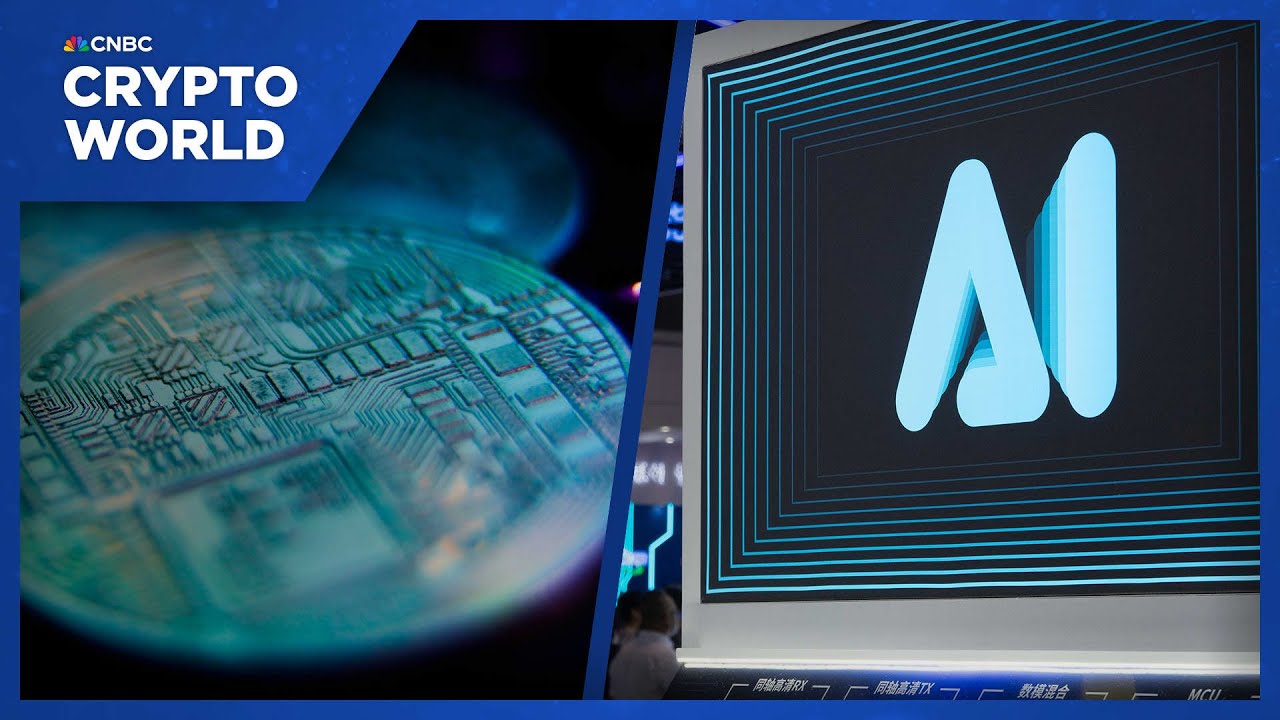The video explores the potential economic impact of combining artificial intelligence (AI) and blockchain technology, predicting that their integration could add $20 trillion to the global economy by 2030. It highlights the shift of crypto miners towards AI services, allowing for enhanced computing capabilities and innovative applications, while also addressing concerns about overestimating blockchain’s ability to combat AI-generated misinformation.
The video discusses the growing intersection between artificial intelligence (AI) and blockchain technology, highlighting the potential economic impact of their convergence. AI has recently attracted significant investment, outpacing both fintech and cryptocurrency sectors, with over $40 billion allocated to AI in the second quarter of the year. Despite this shift in investment, the speaker emphasizes that AI and blockchain can complement each other rather than compete, suggesting that their combination could greatly enhance technological advancements and create a robust, collaborative environment.
Bitwise Asset Management forecasts that the integration of AI and blockchain could contribute an impressive $20 trillion to the global economy by 2030. The speaker notes that the current AI boom has substantially elevated demand for high-performance computing (HPC) data centers, prompting crypto miners, who traditionally focused on Bitcoin, to pivot and partner with AI companies. This shift allows miners to diversify their revenue streams as they retrofit existing facilities to accommodate AI services, given the miners’ access to significant power resources and infrastructure.
The video also highlights specific examples of crypto mining companies adapting to this trend, such as Core Scientific’s partnership with an Nvidia-backed startup, which is projected to generate $5 billion in revenue over 12 years. Other firms, like Hut 8, are raising funds to expand their AI data center capabilities. The speaker points out that the synergy between AI’s rapid adoption and the capabilities of crypto miners creates a unique opportunity for growth in both sectors, suggesting that the demand for computing power will only increase.
Furthermore, the video delves into the transformative potential of AI in relation to smart contracts and complex virtual assistants. By leveraging blockchain, these AI agents could operate more efficiently, tackling more intricate tasks than current virtual assistants like Siri or Alexa. Predictions from industry experts indicate that revenue from AI and crypto combined could reach $1.2 billion by the end of the decade, with opportunities for establishing digital identities on the internet being identified as a significant market for future growth.
However, the convergence of AI and crypto is not without its concerns. Some experts caution against overestimating the capabilities of blockchain to combat misinformation generated by AI. While blockchain can provide timestamps and audit trails, it does not guarantee the authenticity of content. The speaker warns against the proliferation of projects that superficially integrate AI and crypto without genuine innovation. Despite these challenges, there is optimism about the future collaboration between AI and blockchain, with predictions of fully autonomous AI systems managing portfolios within a few years, enhancing efficiency and risk management in the financial sector.
